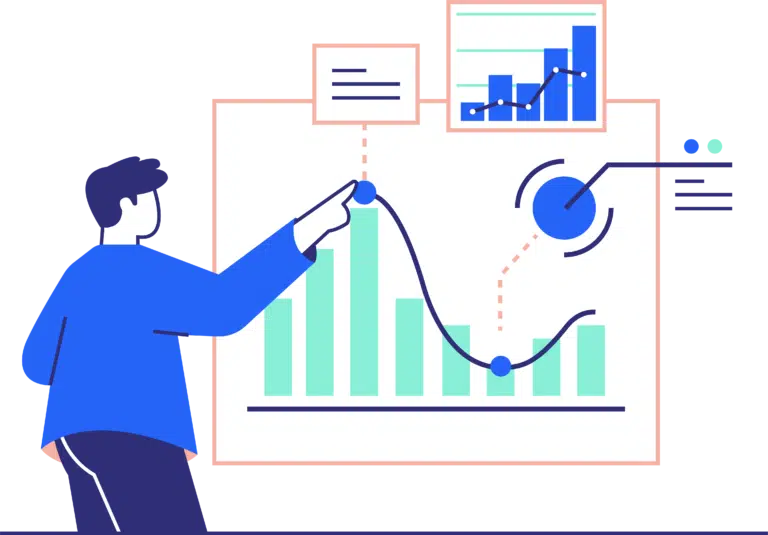An environment of advertising in the Emerald Isle is transforming quickly, with AI at the vanguard of this transformation. As organizations across the Irish nation seek innovative ways to engage with their customers, comprehending the return on investment or ROI from advertising campaigns has never been more important. Irish companies are now adopting AI-powered strategies that not only enhance interaction but also provide invaluable insights into buyer habits and tastes.
In this piece, we will examine the ongoing state of ROI in marketing in Ireland, looking at important trends, metrics, and benchmarks. From funding for online promotion to the effectiveness of classic methods, we will reveal how businesses in the Emerald Isle are assessing performance and adjusting their strategies for the coming times. With a emphasis on genuine information and examples, we aim to provide a detailed overview of what marketers need to know to optimize their ROI in this fluid environment. Whether you are a startup or an well-established enterprise, comprehending these forces will be essential to staying competitive in the market.
Understanding Marketing ROI in the Republic of Ireland
Return on Investment in Marketing, or ROI, is a key metric for Irish companies looking to assess the efficacy of their marketing efforts. In this region, the environment is distinct, influenced by both local buying patterns and broader economic trends. Companies need to monitor how much revenue is produced for every euro spent on marketing, allowing them to determine what approaches provide the best results and which may require a second look.
One of the obstacles marketers in Ireland face is calculating ROI accurately amidst a quickly evolving digital landscape. Traditional metrics frequently fall short in offering a holistic view, especially with the increasing importance of online channels. Initiatives such as social media, paid ads, and email marketing must be analyzed not just in isolation, but also in combination with one another to understand their collective effect on total business success. Organizations that successfully integrate these metrics can uncover greater insights into customer engagement and conversion rates.
As the Irish market continues to develop, grasping marketing ROI requires an openness to innovative approaches and technologies. Companies are beginning to embrace more advanced analytics tools to dissect their marketing campaigns further, leading to a more refined view of what effectiveness looks like. Moreover, data drawn from actual ROI data from different marketing campaigns provide standards that can assist companies in Ireland remain competitive while optimizing their tactics for future growth.
Evaluating and Benchmarking ROI
Measuring and benchmarking marketing ROI is crucial for businesses in Ireland aiming to improve their approaches and boost financial results. In a quickly changing digital landscape, companies must frequently track and assess their marketing outcomes compared to their expenditures. Establishing definitive metrics is essential; businesses can leverage tools like Google Analytics or CRM systems to accurately attribute sales to particular marketing activities. This method enables businesses to quantify the influence of their marketing spending, allowing for more educated decision-making.
Benchmarking against industry standards can offer valuable information into how an Irish company's marketing efforts stack up against other players. By comprehending the average marketing ROI metrics relevant to their industry, businesses can identify gaps and chances for enhancement. These benchmarks may vary significantly across different industries in Ireland, from consumer goods to IT, underscoring the importance of niche data to guide strategy. Leveraging this intelligence can guide targeted marketing efforts that are more likely to yield favorable ROI.

Moreover, as the Irish market continues to embrace digital change, companies need to stay up to date with emerging trends that affect ROI. Innovative strategies, such as harnessing data analytics and AI in marketing campaigns, can create a market edge. Regularly assessing performance against both historical data and market benchmarks allows businesses to respond quickly to shifts in consumer behavior and spending patterns, ensuring that their marketing efforts remain aligned with changing expectations.
Future Developments and Predictions
The environment of marketing in Ireland is set for substantial evolution driven by advancements in artificial intelligence. As more Irish organizations adopt AI solutions, we can expect a move towards more customized marketing tactics that utilize data insights. Companies will more often make use of ML algorithms to analyze consumer behavior, enabling them to create campaigns that connect deeply with target audiences. This trend will not only improve customer engagement but also optimize marketing expenditure, improving overall marketing return on investment.
In addition to customization, the integration of AI in marketing data analysis will lead to more reliable measurement of return on investment. As businesses implement cutting-edge tools that provide immediate analytics, they will gain better understanding into the results of their marketing strategies. This will enable Irish businesses to make data-driven choices and modify their strategies on the spot. Consequently, the ability to assess the effectiveness of different marketing channels will improve, allowing businesses to distribute resources effectively, resulting in higher returns.
Furthermore, we expect a growing focus on sustainability and responsible marketing practices influenced by consumer preferences. Irish companies are progressively aware of the significance of corporate social accountability and will likely formulate marketing strategies that align with these principles. As environmental responsibility becomes a focus, successful marketing efforts will sync with green initiatives, appealing to the ethical considerations of modern buyers. This shift will not only improve brand loyalty but also potentially drive superior marketing return on investment as businesses that prioritize sustainability are often favored in the marketplace.
